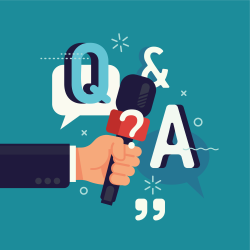Protective Immunity | Professor Paul Klenerman

What parts of the immune system are involved in generating a protective response against COVID-19 and how long does this immunity last? Researchers within Theme 2 are working to understand whether catching COVID-19 once protects you from reinfection. We don’t yet know for certain whether people who have previously contracted SARS-CoV-2 become immune after the fact, or if they are, how long that immunity lasts. However, recent research suggests some lasting protection against the virus.
Theme 2 Lead, Professor Paul Klenerman, has answered some common questions about the protective effects of the immune system after having COVID-19. These questions will be updated and added to over time as our understanding develops and priorities for research change.
Does having caught COVID-19 once protect you from being infected again?
"Yes, it does protect you from reinfection. This is one of the areas that UK-CIC researchers are studying to help us find out more. At the moment we only have data from a few studies, but it does appear that people who have caught the disease are protected from a second infection. However, you may not be 100% protected. There have been some documented cases of reinfection, although these are uncommon. One issue is that the data we have only reaches out to 6 months or so, meaning that we need to continue monitoring people who have had COVID-19 in the past to see if the responsiveness of their immune system declines significantly after this point. So far, the overall decline in what we can measure as ‘immune memory’ is not very fast."
If it turns out that we are protected from a second infection, for how long might we be protected?
"We do not know this yet, as this is a new virus and we are only able to follow cases back so far. For SARS (2002–2004 outbreak), the most closely-related virus to SARS-CoV-2 which caused COVID-19, we have measured good immune responses even decades later, which is quite encouraging. Exactly how long that protection lasts for may slightly depend on whether the initial infection was severe or asymptomatic, as some research has suggested that those who had more severe symptoms had higher immune responses months later, but this we can only learn from longer studies."
What happens in the immune system to stop viruses spreading?
"For all of us, whether it is the first infection or not, the innate immune response is very important. This becomes active in the first few hours or days after encountering the virus. If you have been previously exposed, there are two major planks of immunity that stop the spread within the body – B cells and T cells. The B cells make antibodies that circulate in the blood and also can be concentrated at surfaces like the nose and lung. If there are enough antibodies, either from a previous infection or from a vaccination, you can develop what is called ‘sterilising’ immunity, so that no virus can actually take hold. But even if that is not achieved, the immune system can reactivate very quickly to dampen down infection, for example in the upper airways."
This page was last updated on: 15/01/2021
